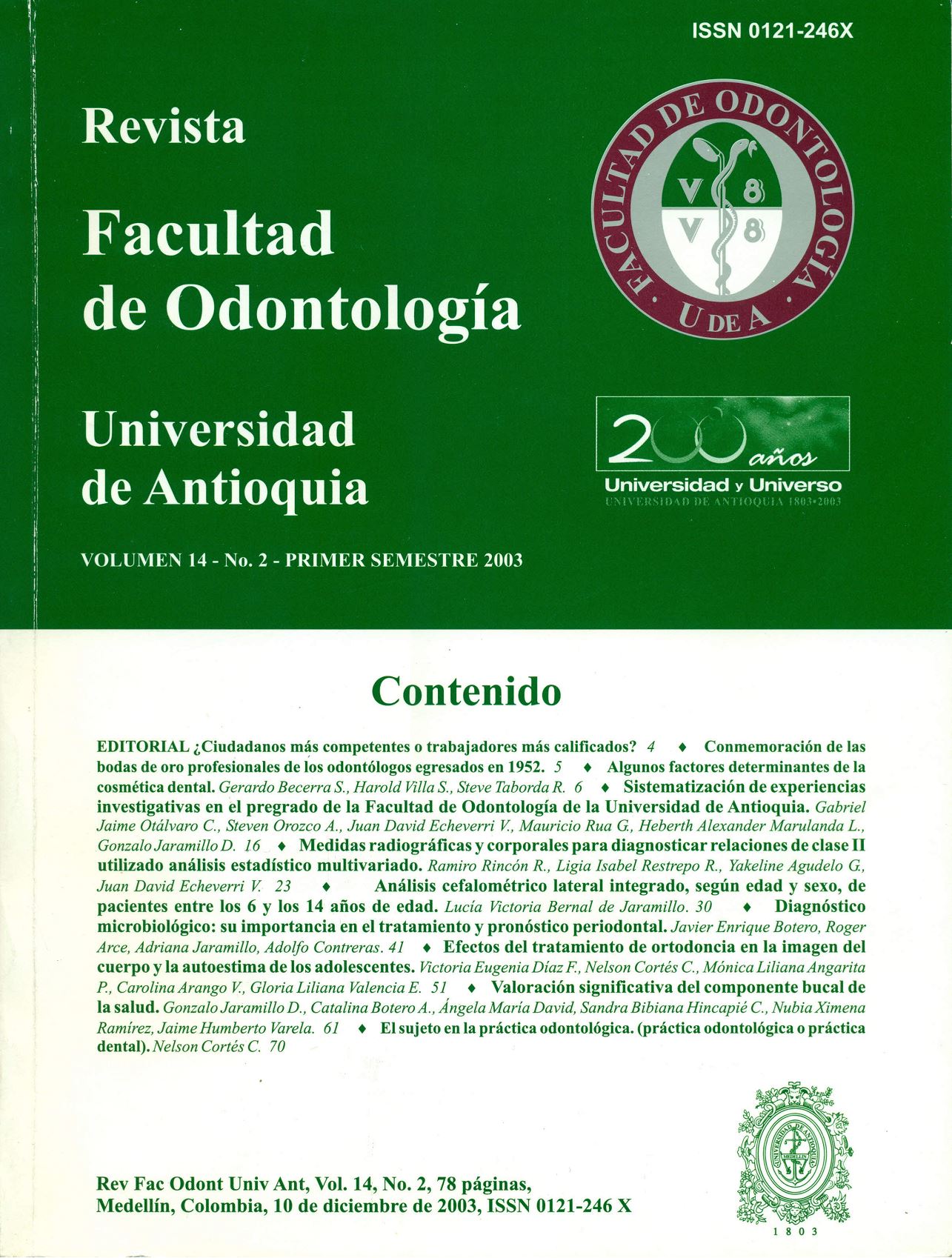Diagnóstico microbiológico: su importancia en el tratamiento y pronóstico periodontal
DOI:
https://doi.org/10.17533/udea.rfo.23995Keywords:
Microbial culture, PCR, Etiopathogenesis, Diagnosis, Antibiotic therapyAbstract
Periodontal disease is characterized by the imbalance between the host-bacteria response resulting in an inflammatory process that initiates the destruction of the periodontal tissues of the tooth. At present it is accepted that the proliferation of microorganism in the subgingival environment is associated with etiopathogenesis of destructive periodontitis. The identification of periodontal pathogens is a rational approach to the diagnosis, treatment and prognosis of periodontal diseases. Several identification techniques have been developed since the beginning of the past century including microscopic evaluation of the dental plaque and modern molecular techniques for the detection of bacterial DNA. Each one of these methods has its advantages and disadvantages. In general, microbiological detection techniques offer useful information on the composition of the subgingival microbiota and, in some cases; it is possible to determine susceptibility to antibiotics (microbial culture). This article reviews and discusses different techniques available for microbial identification and its relevance in the diagnosis, treatment and prognosis of periodontal disease.
Downloads
Downloads
Published
How to Cite
Issue
Section
License
Copyright Notice
Copyright comprises moral and patrimonial rights.
1. Moral rights: are born at the moment of the creation of the work, without the need to register it. They belong to the author in a personal and unrelinquishable manner; also, they are imprescriptible, unalienable and non negotiable. Moral rights are the right to paternity of the work, the right to integrity of the work, the right to maintain the work unedited or to publish it under a pseudonym or anonymously, the right to modify the work, the right to repent and, the right to be mentioned, in accordance with the definitions established in article 40 of Intellectual property bylaws of the Universidad (RECTORAL RESOLUTION 21231 of 2005).
2. Patrimonial rights: they consist of the capacity of financially dispose and benefit from the work trough any mean. Also, the patrimonial rights are relinquishable, attachable, prescriptive, temporary and transmissible, and they are caused with the publication or divulgation of the work. To the effect of publication of articles in the journal Revista de la Facultad de Odontología, it is understood that Universidad de Antioquia is the owner of the patrimonial rights of the contents of the publication.
The content of the publications is the exclusive responsibility of the authors. Neither the printing press, nor the editors, nor the Editorial Board will be responsible for the use of the information contained in the articles.
I, we, the author(s), and through me (us), the Entity for which I, am (are) working, hereby transfer in a total and definitive manner and without any limitation, to the Revista Facultad de Odontología Universidad de Antioquia, the patrimonial rights corresponding to the article presented for physical and digital publication. I also declare that neither this article, nor part of it has been published in another journal.
Open Access Policy
The articles published in our Journal are fully open access, as we consider that providing the public with free access to research contributes to a greater global exchange of knowledge.
Creative Commons License
The Journal offers its content to third parties without any kind of economic compensation or embargo on the articles. Articles are published under the terms of a Creative Commons license, known as Attribution – NonCommercial – Share Alike (BY-NC-SA), which permits use, distribution and reproduction in any medium, provided that the original work is properly cited and that the new productions are licensed under the same conditions.
![]()
This work is licensed under a Creative Commons Attribution-NonCommercial-ShareAlike 4.0 International License.













